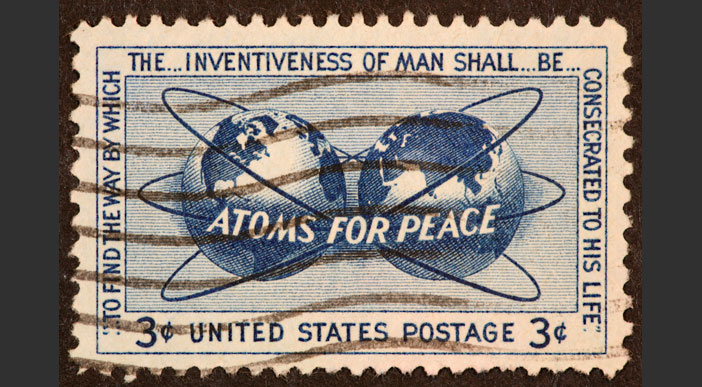by Ashutosh Jogalekar

The visionary physicist and statesman Niels Bohr once succinctly distilled the essence of science as “the gradual removal of prejudices”. Among these prejudices, few are more prominent than the belief that nation-states can strengthen their security by keeping critical, futuristic technology secret. This belief was dispelled quickly in the Cold War, as nine nuclear states with competent scientists and engineers and adequate resources acquired nuclear weapons, leading to the nuclear proliferation that Bohr, Robert Oppenheimer, Leo Szilard and other far-seeing scientists had warned political leaders would ensue if the United States and other countries insisted on security through secrecy. Secrecy, instead of keeping destructive nuclear technology confined, had instead led to mutual distrust and an arms race that, octopus-like, had enveloped the globe in a suicide belt of bombs which at its peak numbered almost sixty thousand.
But if not secrecy, then how would countries achieve the security they craved? The answer, as it counterintuitively turned out, was by making the world a more open place, by allowing inspections and crafting treaties that reduced the threat of nuclear war. Through hard-won wisdom and sustained action, politicians, military personnel and ordinary citizens and activists realized that the way to safety and security was through mutual conversation and cooperation. That international cooperation, most notably between the United States and the Soviet Union, achieved the extraordinary reduction of the global nuclear stockpile from tens of thousands to about twelve thousand, with the United States and Russia still accounting for more than ninety percent.
A similar potential future of promise on one hand and destruction on the other awaits us through the recent development of another groundbreaking technology: artificial intelligence. Since 2022, AI has shown striking progress, especially through the development of large language models (LLMs) which have demonstrated the ability to distill large volumes of knowledge and reasoning and interact in natural language. Accompanied by their reliance on mountains of computing power, these and other AI models are posing serious questions about the possibility of disrupting entire industries, from scientific research to the creative arts. More troubling is the breathless interest from governments across the world in harnessing AI for military applications, from smarter drone targeting to improved surveillance to better military hardware supply chain optimization.
Commentators fear that massive interest in AI from the Chinese and American governments in particular, shored up by unprecedented defense budgets and geopolitical gamesmanship, could lead to a new AI arms race akin to the nuclear arms race. Like the nuclear arms race, the AI arms race would involve the steady escalation of each country’s AI capabilities for offense and defense until the world reaches an unstable quasi-equilibrium that would enable each country to erode or take out critical parts of their adversary’s infrastructure and risk their own. Read more »

 Twenty years ago, John Reed made an unexpected discovery: “If Orwell esoterica wasn’t my foremost interest, I eventually realized that, in part, it was my calling.” In the aftermath of September 11, 2001, ideas that had been germinating suddenly coalesced, and in three weeks’ time Reed penned a parody of George Orwell’s Animal Farm. The memorable pig Snowball would return from exile, bringing capitalism with him—thus updating the Cold War allegory by fifty-some years and pulling the rug out from underneath it. At the time, Reed couldn’t have anticipated the great wave of vitriol and legal challenges headed his way—or the series of skewed public debates with the likes of Christopher Hitchens. Apparently, the world wasn’t ready for a take-down of its patron saint, or a sober look at Orwell’s (and Hitchens’s) strategic turn to the right.
Twenty years ago, John Reed made an unexpected discovery: “If Orwell esoterica wasn’t my foremost interest, I eventually realized that, in part, it was my calling.” In the aftermath of September 11, 2001, ideas that had been germinating suddenly coalesced, and in three weeks’ time Reed penned a parody of George Orwell’s Animal Farm. The memorable pig Snowball would return from exile, bringing capitalism with him—thus updating the Cold War allegory by fifty-some years and pulling the rug out from underneath it. At the time, Reed couldn’t have anticipated the great wave of vitriol and legal challenges headed his way—or the series of skewed public debates with the likes of Christopher Hitchens. Apparently, the world wasn’t ready for a take-down of its patron saint, or a sober look at Orwell’s (and Hitchens’s) strategic turn to the right.